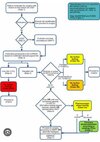Another one
75ish ESRD, 350 lb, BMI>50, OSA cpap non-compliant, IDDM, AFib, CAD with MI just a little over 6 months ago, mets<4, 4+ pitting tense and weeping lower extremity edema. Gfr<10, cr>8. Implantable loop as worsening AFib and going in and out of mobitz type 2. Nephro notes asking for cardiac input on pacemaker placement from a few months ago . Presented for outpatient lower extremity angiography and stent placements.
Family med NP signs off saying cleared for surgery with risk of 0.4%. Not cosigned by any physician.
RCRI risk is>11%. Tell the surgeon my concerns and that patient isn't optimized. They say "not a problem, just do it as a mac"."I explained to them the risk of MACE , and they respond "yeah I have no idea what that means. I never heard of it before". Guy hasn't seen cardio in months which seemed odd to me. I tell them of the tense lower extremity edema and they, with a straight face, tell me "that is just cosmetic, do his lungs sound clear?" Cant really tell on all levels with such a habitus. I tell the vascular surgeon I would like some cardiac input on this guy before proceeding and they had an excellent comeback " Hey everybody, this guy doesn't want to do his job" in preop hold in front of a bunch of nursing staff and patients.
I told em if they want my participation then I get a say and that they can happily do the case with conscious sedation or local only if they want to disregard my concerns. They turn it on me with "hey we are a team and we can't do anything without you doing your part". When I ask them to consult cardio in house, they just cancel saying anesthesia doesn't want to do the case.
Vascular is fairly malignant at my shop. Partners tell me that patients will show up having somehow failed to obtain medical clearance or have some boilerplate NP low risk no workup note held a higher standard over that of a consultant. Vascular surgeons shout them down and pushes for them to proceed. If someone stands firm, older partners usually shop it around.
I wish we had a policy of a physician only cardiac clearance for higher risk patients. No mid-level boilerplate clearances. Real risk stratification and discussions on optimization.
I mean, how did we get to such a culture?
